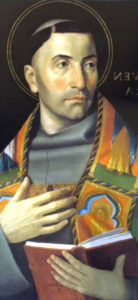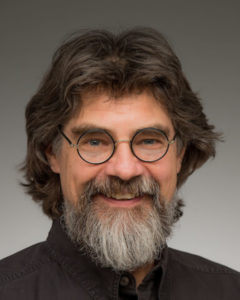Podcast: Play in new window | Download (Duration: 28:35 — 19.7MB) | Embed
Subscribe: Apple Podcasts | Spotify | Amazon Music | Android | Pandora | iHeartRadio | JioSaavn | Podchaser | Gaana | Podcast Index | Email | TuneIn | Deezer | Anghami | RSS | More

God’s Unconditional Love – The Daily Prayer of Discernment: The Examen Prayer with Fr. Timothy Gallagher
Fr. Timothy Gallagher and Kris McGregor discusses the importance and depth of the fourth step of the Ignatian Examen, which involves seeking God’s forgiveness. Fr. Gallagher explains that this step builds on the previous steps of gratitude, petition, and review, leading one to face personal failures and missed opportunities to reject temptations. He emphasizes the sensitivity needed in this step, as it touches deep places in the heart.
Fr. Gallagher illustrates the process with personal anecdotes. One story involves his initial reaction to a colleague’s office renovation, where he realized his response was not fully gospel-centered. Another involves his interaction with a community member with disabilities, highlighting the importance of addressing even small failures in love and charity. Fr. Gallagher also reflects on a poem by George Herbert, “Love,” which portrays the dynamic between God’s persistent love and the human heart’s sense of unworthiness. This dynamic mirrors the experience of seeking and accepting God’s forgiveness in the examen.
In the fifth step, renewal, Fr. Gallagher describes how the insights gained from the examen can guide actions and decisions in the coming day. He shares personal experiences where praying the examen helped him approach relationships and tasks with greater clarity and gospel-centered love.
Discerning Hearts Reflection Questions
- Understanding the Four Steps of Forgiveness: How do the first three steps of the Examen prepare us to seek God’s forgiveness in the fourth step?
- The Importance of God’s Love: How does acknowledging God’s infinite love help us approach Him for forgiveness?
- Personal Reflection on Gratitude: In what ways can gratitude to God enhance our openness to seek and receive His forgiveness?
- Recognizing Daily Spiritual Experiences: How does reviewing the spiritual experiences of our day reveal our need for God’s forgiveness?
- Real-Life Application of the Examen: Can you recall a moment where you could have acted differently and how would you seek God’s forgiveness for it now?
- Learning from Small Failures: Why is it important to bring even small failures to the Lord for forgiveness?
- Forgiveness in Interpersonal Relationships: How can seeking God’s forgiveness inspire us to seek reconciliation with others?
- Embracing God’s Love Fully: What steps can we take to overcome feelings of unworthiness and fully embrace God’s love and forgiveness?
- Looking Forward with the Lord: How can the fifth step of the Examen, renewal, help us grow spiritually and improve our future actions?
- Poetic Insights on Divine Love: How does George Herbert’s poem “Love” illustrate the dynamic of God’s persistent love and our hesitant response?

As outlined from the Spiritual Exercises of St. Ignatius of Loyola
(translated from the autograph by Fr. E. Mullan, S.J. 1909 in the public domain)
METHOD FOR MAKING THE GENERAL EXAMEN
It contains in it five Points.First Point. The first Point is to give thanks to God our Lord for the benefits received.
Second Point. The second, to ask grace to know our sins and cast them out.
Third Point. The third, to ask account of our soul from the hour that we rose up to the present Examen, hour by hour, or period by period: and first as to thoughts, and then as to words, and then as to acts, in the same order as was mentioned in the Particular Examen.
Fourth Point. The fourth, to ask pardon of God our Lord for the faults.
Fifth Point. The fifth, to purpose amendment with His grace.OUR FATHER.
Father Timothy M. Gallagher, O.M.V., was ordained in 1979 as a member of the Oblates of the Virgin Mary, a religious community dedicated to retreats and spiritual formation according to the Spiritual Exercises of St. Ignatius. Fr. Gallagher is featured on the EWTN series “Living the Discerning Life: The Spiritual Teachings of St. Ignatius of Loyola”. For more information on how to obtain copies of Fr. Gallaghers’s various books and audio which are available for purchase, please visit his website: frtimothygallagher.org












